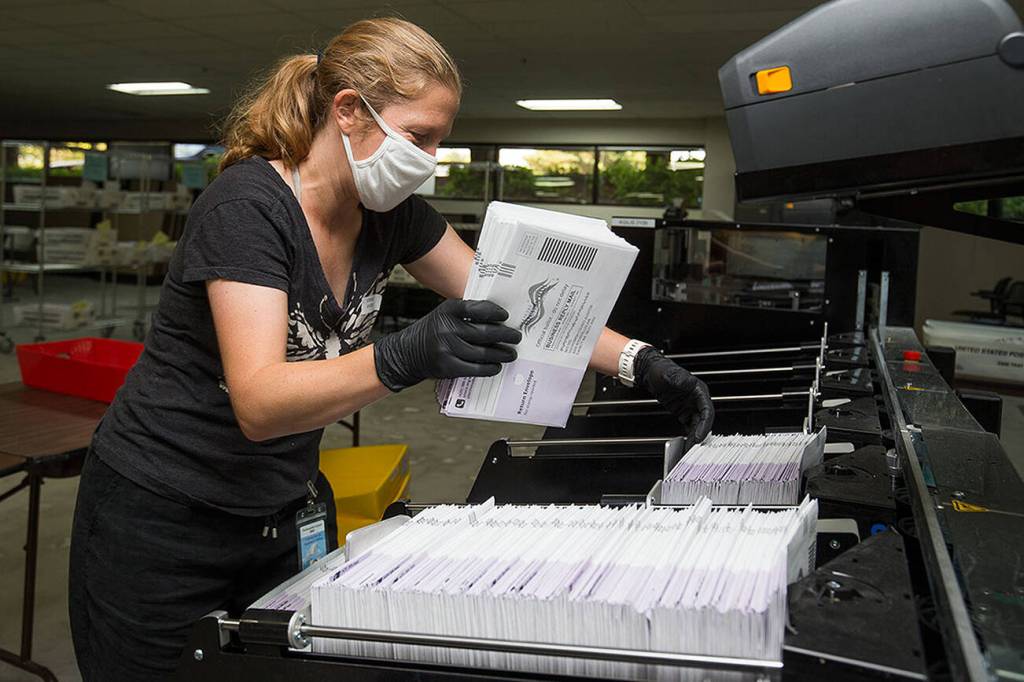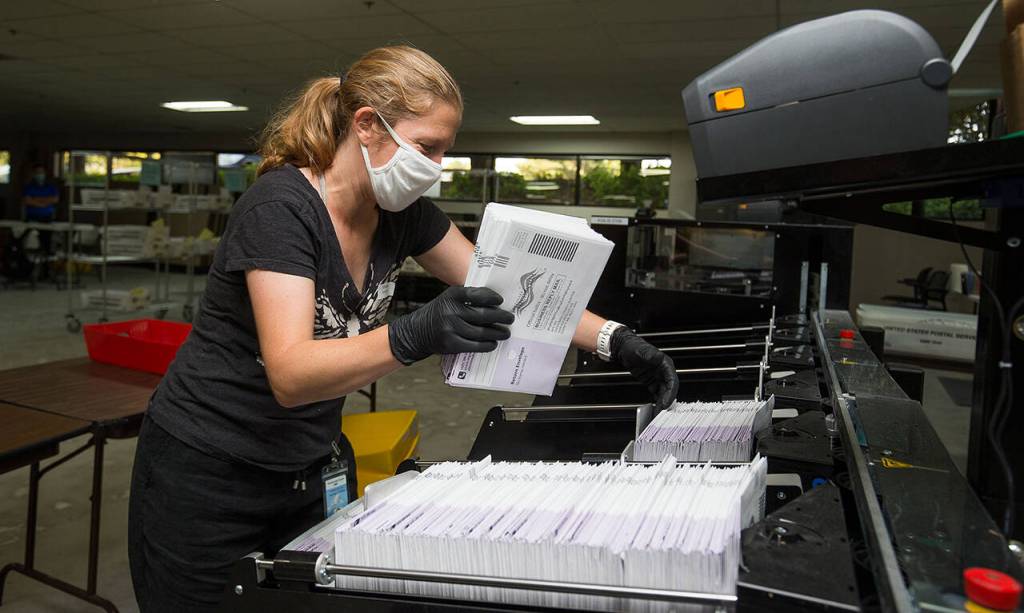Editorial: Hobbs edges Anderson for Secretary of State
Published 1:30 am Sunday, July 17, 2022


By The Herald Editorial Board
Among the most important races for this year’s primary and general election is that for secretary of state.
As the state’s chief election officer, the Secretary of State office’s importance has only increased since the 2020 election because of unfounded accusations among some — even in the face of a range of improvements in voter access and election security, integrity and reliability — that have cast doubt on state and national elections.
Washington state had been fortunate in recent years because of the stewardship of Kim Wyman, a Republican, since her first election to the office in 2012. Wyman built a reputation for election integrity and a nonpartisan tone, one that, following her election to a third term in 2020, drew the attention of the Biden administration, which appointed her to a federal election security post, leaving open her uncompleted term.
While Republicans lobbied for someone from their party to replace Wyman, Gov. Jay Inslee, appointed state Sen. Steve Hobbs, a Lake Stevens Democrat, to serve until voters this fall could confirm that appointment or elect a new secretary.
Eight candidates filed for the office, four of whom — because of their past elected experience; three as former or current state legislators; one as a county auditor — were interviewed last week by The Herald Editorial Board.
In addition to the current office holder, Hobbs, the candidates with the most relevant experience are:
Republican Mike Miloscia, a former state representative and senator, from Federal Way;
Republican state Sen. Keith Wagoner, of Sedro-Woolley, who represents the 39th Legislative District, and serves as minority whip; and
Julie Anderson, who is running as a nonpartisan, and has served as the Pierce County auditor since 2009.
Some background about the office: The secretary of state is Washington’s chief elections officer, responsible for supervising state and local elections and working with 39 county auditor’s offices running those elections, certifying results and producing the state voters guide. The position in recent years has required efforts to encourage voter registration and turnout, adopt new technologies and policies to support that work and bolster the security of voting infrastructure and practices.
Washington is one of six states where all voting is done by mail-in ballots. Currently, more than 4.78 million state residents are registered to vote, up more than 285,000 voters since the 2018 election.
The office also is responsible for running the state library and safeguarding and providing access to historical records and collections; registering and licensing corporations, partnerships and trademarks; registering charities and nonprofits; serves as chairman of the state Productivity Board; and administers the address confidentiality program for survivors of domestic violence, sexual assault and stalking.
Miloscia, who ran for state auditor in 2016, and has worked professionally as a Air Force contracts manager, quality examiner and teacher, has an analytic mindset and drive useful to the office.
To best address voters’ concerns over election integrity, Miloscia said he would seek to use “the power of quality management and audits” to restore confidence in elections.
Wagoner has been among those who have worked across the aisle most effectively, recently on the state’s tax structure work group, considering potential reforms to the state’s package of taxes. Wagoner, while focused on serving the office’s chief task for elections, also expressed enthusiasm for the secretary of state’s other responsibilities.
Wagoner said that the basic structure of the state’s election system is sound but there are “leaks in the system that need to be addressed.” During the pandemic, Wagoner said, there were mistakes made at the county level that have generated some doubt and need attention.
Either Wagoner or Miloscia could serve the office well, but the two candidates best suited for the job are Hobbs and Anderson.
Anderson — like Wyman, a county auditor prior to her election — offers the most directly applicable experience from her 13 years as a county auditor, as well as a record that includes her current leadership as president of the state association of county auditors.
Among proposals that Anderson said would help restore confidence among all voters is a corps of nonpartisan observers to augment the election observers appointed by the two parties, to help verify the integrity of elections, something she has already established in Pierce County.
Additionally, Anderson has outlined a raft of proposals to improve access to elections and strengthen election security and transparency, including adding to existing audits a system of “risk-limiting audits” that would use a statistically valid sample of ballots across all 39 counties in particular races, including the top-of-the-ticket races that draw the most interest.
As well Anderson said she would seek to remove partisanship from election administration, starting with her decision to run without party affiliation, bypassing party financial and other campaign support. Anderson — again as Wyman had sought and as this editorial board has recommended — wants to the see the Legislature make the office nonpartisan for future elections. Of all the policies that all four candidates offered as ways to improve voter confidence, candidates running for auditor and serving as nonpartisans could be among the most effective tools to that end.
Hobbs, provided the advantage of his appointment to the office, has not coasted while waiting for the election. Since taking office in November, Hobbs has adopted policies and shepherded improvements that have added to what Wyman left in place.
Hobbs has enhanced the state’s election system’s security and cybersecurity, building on his own experience as a lieutenant colonel in the state Army National Guard and continuing a previous secretary of state relationship with the National Guard to upgrade and test against simulated attacks on computer systems. As well he has secured funding from the Legislature to hire more technicians for the office’s security center.
Hobbs also is working at the county level on voter outreach and education. That advocacy work continues, Hobbs said, as he seeks funding for a pilot project that would establish an “SOS” response team to address specific problems of individual counties with cybersecurity or other issues.
Regarding a broader concern, Hobbs said, he intends to seek legislation that would address “deep fakes,” which can digitally manipulate audio and video to make people — in particular candidates — appear to say and do things they have not. That’s in addition to current efforts to address misinformation and disinformation regarding elections, candidates and ballot measures that can sap voter confidence, including working with social media platforms to take down and correct inaccurate and misleading posts.
Voters have the good fortune to be faced with a difficult choice between two abundantly qualified and dedicated candidates who understand the importance of this office to the state’s and nation’s representative democracy and to every voter’s ballot.
Hobbs has earned the endorsement — not because of his appointment to the office — but because of what he has done in less than a year serving in that office.




